Some people really enjoy crossword puzzles, but anyone who likes a mental task can enjoy them. These tasks are more than just a way to pass the time, whether you do a quick NYT Mini Crossword while sipping your coffee or a full length USA Today crossword. While doing them, your brain works in ways that other tasks don’t, which makes your memory and language skills better.
The wordplay, puns, and hidden hints that are used in American style crosswords make them stand out. Look for a hint like “Move quickly.” It looks like a pretty easy job at first, right? When you think about it, though, your mind starts to work through the different options sneak, creep, sidle and each one opens up a new level of understanding. This way of answering problems is what makes crosswords fun and good for your brain.
When you do crosswords, you feel like you’re actively challenging yourself. You’re not just taking in information like you would when you’re scrolling through social media or watching TV. You’re also using your own words, checking your memory, and putting clues together to make sense. It works your mind like a workout, and the more you do it, the stronger your brain gets. Every time you do a crossword, whether it’s a small crossword or a themed NYT crossword, your memory and ability to solve problems get better.
The cool thing about crosswords is that you can do more than just fill in the blanks. They have been shown to help slow down cognitive decline, especially in older people who do them often. You’re not just killing time when you do a daily crossword puzzle or even a free online crossword. You’re actually keeping your brain in great shape.
We will learn more about how doing crossword puzzles can help your memory and speaking skills in this blog. Why are crosswords one of the best ways to keep your mind sharp? We’ll talk about the science behind them and the long term benefits they offer.
Crossword Cognitive Benefits
Not only are crossword puzzles entertaining, but they also really help your brain. Your brain is working very hard as you work through hints and complete the answers. You’re grabbing from your memory, linking words, and acting fast. All of this sharpens your brain.
How Crossword Puzzles Challenge Your Brain
Your brain gets a decent workout every time you finish a crossword puzzle. You are remembering words, thinking critically, and problem solving using separate areas of your brain. This kind of brain workout sharpens your memory and increases word recall ability. When working on a clue like “Visibly muscular crossword clue,” for instance, your brain must rapidly consider words like “buff” or “ripped,” therefore enhancing your capacity to access words faster.
Furthermore strengthening your attention span are crossword puzzles. They call on you to maintain track of everything in the grid, recall what you already solved, and concentrate on the hints. This level of concentration extends into real life, keeping you sharp at job, school, or just in regular chores.
Memory and Crossword Puzzles
Solving crossword puzzles enhances not only word recall but also how your brain stores and accesses knowledge. Consider it as workout for your working memory. Whether it’s something you recall from a crossword a few days ago or a clue you’re solving right now, your brain continuously has to extract words or data. As you exercise it, your memory gets better over time.
If you keep solving puzzles, for instance, you will find that each time you recall specific phrases and hints faster. Stronger connections the brain creates help you to remember terms and ideas you came across in puzzles when you need them.
Regular crossword puzzle completion has been found to slow down cognitive loss. Indeed, several studies indicate that those who solve these kinds of puzzles especially as they get older often have better long term memory. It’s about the whole impact of routinely solving challenges, not only about one challenge.
How Crossword Comforts Aid in Word Recall
One more excellent approach to increase your vocabulary is by working on crossroads. Often times, while you solve hints, you come across words you might not use daily. Perhaps it’s a word like “sidle” or “skulk,” which at first seems strange but become simpler to recall as you work through more problems. You improve at memorizing these kinds of terms the more crossword puzzles you work on.
Consider crossword puzzles as a means of enhancing word recall. You will recall words better the more often you encounter them. The continual exposure speeds up word recognition and facilitates more fluid use of them.
Language Learning and Crossword Puzzles
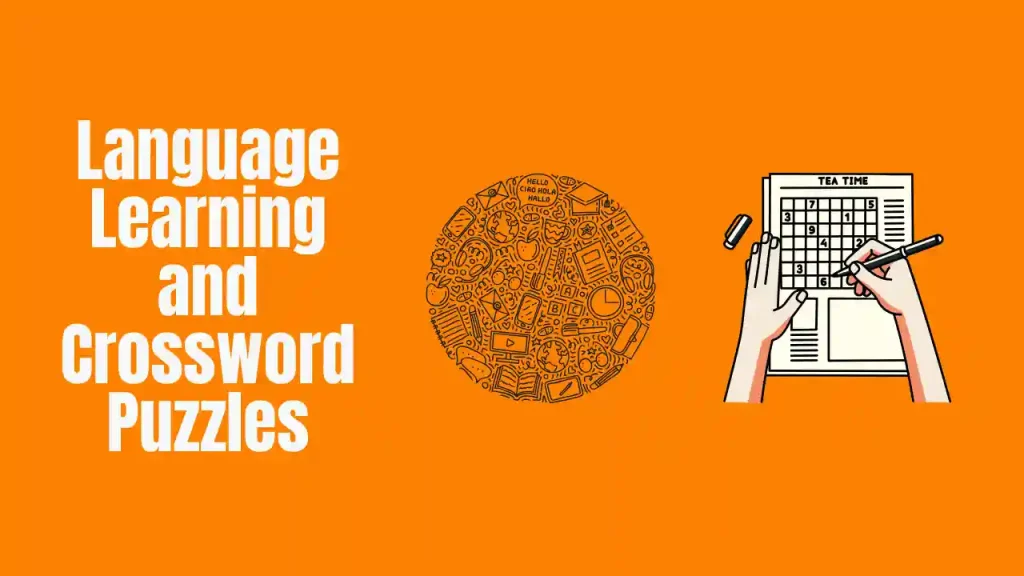
Learning new words and sharpening your linguistic abilities are much aided by crossword puzzles. Solving crossword puzzles will help whether your goal is to increase your vocabulary or you are just beginning to study a new language.
How Solving Crossword Puzzles Boost Vocabulary Learning
The way crossword puzzles naturally expose you to new terms is among its greatest features. You learn a list of words by context rather than memorizing them. When you come into a clue like “Uncle in Spanish,” for instance, you are learning how to utilize the word in context and in a phrase rather than only memorizing the term for “uncle,” in another language. This helps you better remember the term stick.
Though they have significance, crossword puzzles may expose you to vocabulary you might not come across in casual talks. Words like “sashay” or “serpentine,” which will increase your vocabulary and enable more precise expression, are fantastic to know.
Crossword puzzles improve language understanding
Beyond only learning new words, crossword puzzles improve language understanding. You improve in knowing how words fit together in sentences as you work through hints. This improves your grammar, sentence construction, and even puns or wordplay hard skills in a second language.
A clue like “French for Earth NYT,” for instance, can inspire you to consider how languages employ distinct words for the same purpose. Solving this clue not only teaches you the French word for “Earth” but also emphasizes the fact that words vary between languages, therefore improving your grasp of the structure of various languages.
Learning a New Language and Combing Crossword puzzles
Solving crossword puzzles can be an enjoyable and efficient approach to practice your new language. Like those with simple crossword puzzles for beginners, other crossword puzzles are especially meant for language learners. These challenges interactively and interestingly explain simple words and ideas.
Solving a little crossword nyt, for instance, could expose you to some fundamental terminology, and as you advance you will begin to see more sophisticated words. Whether the hints concern geography or cuisine, the effort of deciphering them strengthens your links between words and their meanings.
Many language apps and courses even incorporate crossword-style puzzles to let users hone fresh vocabulary. This approach reinforces what you have discovered in a way that seems more like a game than conventional study.
A Real Life Example
One language learner once mentioned how crossword puzzles helped them pick up fresh English vocabulary. Free online, they began tackling easy crossword puzzles and quickly discovered their vocabulary was expanding. Speaking, they also found that participants could remember and employ words more readily all because crossword puzzles helped strengthen those words in their mind by context.
Crossword Memory Reenergizing
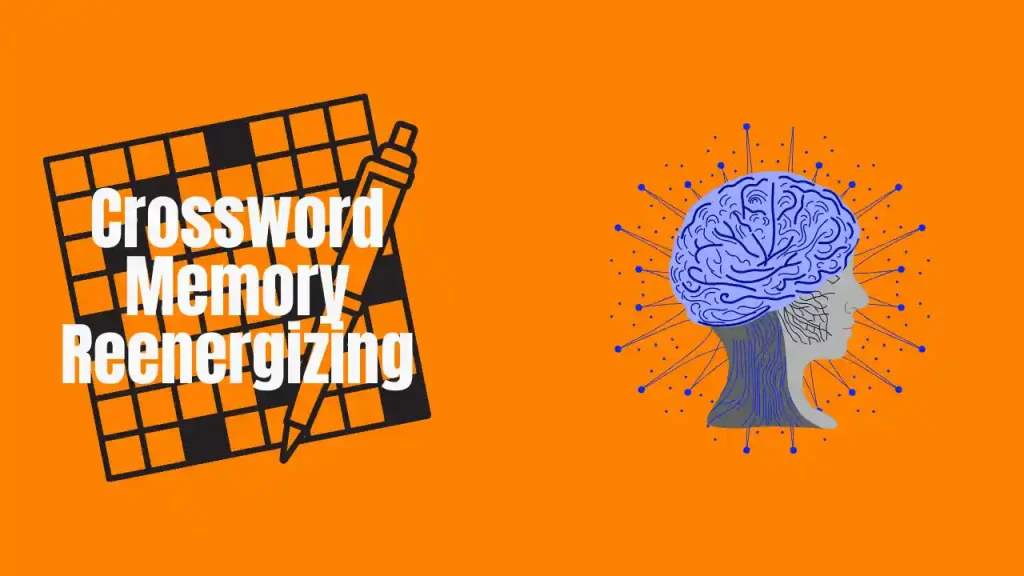
The way crossword puzzles boost your memory is among their greatest advantages. Solving a puzzle trains your brain to remember words, link them with hints, and apply them in context, thereby transcending simple box-filling on a grid. This increases long-term as well as short-term memory throughout time.
How Crossword Puzzles Improve Your Recall
Your brain must retrieve knowledge from memory each time you finish a crossword clue. For a clue like “Bumped items nyt crossword,” for instance, you will have to remember not only the definition of the word “bumped but also the likely responses that match the grid. This activity helps your brain to retain and retrieve knowledge, therefore facilitating future word, fact, and idea recall.
Crossword puzzles resemble mental workouts. Solving problems increases the challenge to your memory to operate effectively. It’s like brain weight training. Every time you finish a problem, your capacity for fast and precise word recall is getting better.
Short Term Memory Against Long Term Memory
Solving crossword puzzles not only improves your long-term memory but also helps you avoid depending simply on temporary memory. When you must rapidly recall anything, such as the solution to a hint, short-term memory is engaged. Crossword puzzles, however, also boost your long-term memory, which facilitates information storage and retrieval across time.
Assume you answer a clue such as “How many pints in a gallon.” Though you might not consider that material every day, once you figure it out, your brain will save the knowledge for next use. The next time you come across such a comparable question, your brain remembers the response faster and that knowledge stays with you longer.
Crossword puzzles enable your brain to build these connections, therefore enhancing your ability to store and access knowledge.
Neuroplasticity and Memory Formation
Crossword puzzles’ ability to foster neuroplasticity the brain’s capacity to create new connections helps to explain why they are so fantastic for memory. Solving puzzles helps your brain to establish fresh paths, therefore facilitating memory and access to knowledge going forward.
Completing crossword puzzles over time helps you create fresh neural connections. This is the reason those who often engage in mental exercises such as crossword solving typically claim improved memory and faster recall. Even if you haven’t thought about them for some time, it’s like enhancing the memory paths in the brain to facilitate remembering of things.
The Part Repetition Plays in Memory
Solving crossword puzzles increases your encounter of some words and hints on a regular basis. Reinforcing memory requires this recurrence. Multiple puzzles may use terminology like “boatload crossword” or “skulk,” which would assist you remember and grasp those terms.
Seeing some words or phrases repeated helps your brain build the memory links and facilitates recall next time. Crossword solvers so frequently answer problems faster with time since the brain gets more effective in retrieving information.
How Crossword Puzzles Might Improve Your Recall

Although many people consider crossword puzzles as only a leisure activity to pass the time, they really accomplish much more. Actually, they activate your brain in ways that can boost your general mental capacity and memory. Consider them as a little brain workout that maintains sharpness and quickness.
Why Memory Matters and How Crossword Puzzle Solvers Benefit
Our memory can begin to degrade somewhat as we become older. Names, where we left our keys, or specifics from talks are lost. Though it is inevitable in life, there are strategies to resist it. Among the simplest and most enjoyable ways to keep your brain busy are crossword puzzles. All things that use your brain and help to preserve your memory, they compel you to think critically, remember facts, and solve issues.
Frequent crossword completion sharpens your brain. Constant word recall, pattern recognition, and clue analysis help you keep your memory running at full speed. Like a muscle, it becomes stronger the more you use it.
How Solving Crossword Puzzles Increases Brain Capacity
Solving a crossword challenges you more than just filling in blanks each time. Your brain is learning to be more effective in recall. When you solve a hint like “Vault opener,” for instance, you are not only remembering the word “pole but also activating other brain areas to assist in concept connection, word length check, and puzzle theme matching.
Your word recall, critical thinking, and pattern recognition abilities are steadily getting better. Your brain is working harder than normal to find all those answers that fit even if you are not aware of it. This habit gradually enhances your memory recall in many spheres of life as well. Even if you’re not working on a problem, you will begin to find that you can more readily recall names or little details.
Little Changes, Significant Effects
Crossword puzzles don’t take hours to help you. One or two daily puzzles solved will clearly make a difference. The best thing about it is Starting is not even dependent on a sophisticated software or book. Online crossword puzzles and the NYT small crossword are among the many tools available that enable you solve problems on demand. You may give your brain some mental boost whether you’re waiting for a meeting, seated on the bus, or savoring a coffee break.
These little daily routines taken together count. Solving a crossword just a few minutes helps maintain brain activity and keen memory. Like practicing mental push ups, you won’t see significant changes over night but will feel the difference with time.
Useful Real Life Skills from Crossword Solvers
Many regular crossword solvers report significant changes in their memory and attention. One person mentioned, for instance, that completing a crossword puzzle every morning before work helped them become cognitively woke and increase focus all through the day. They felt more vigilant and had better memory by the time they convened for meetings.
Others claim to have seen better word recall. Thanks to the memory work cross-roads provide, phrases that used to slip their minds now come to them readily.
The Interplay of Memory and Wordplay
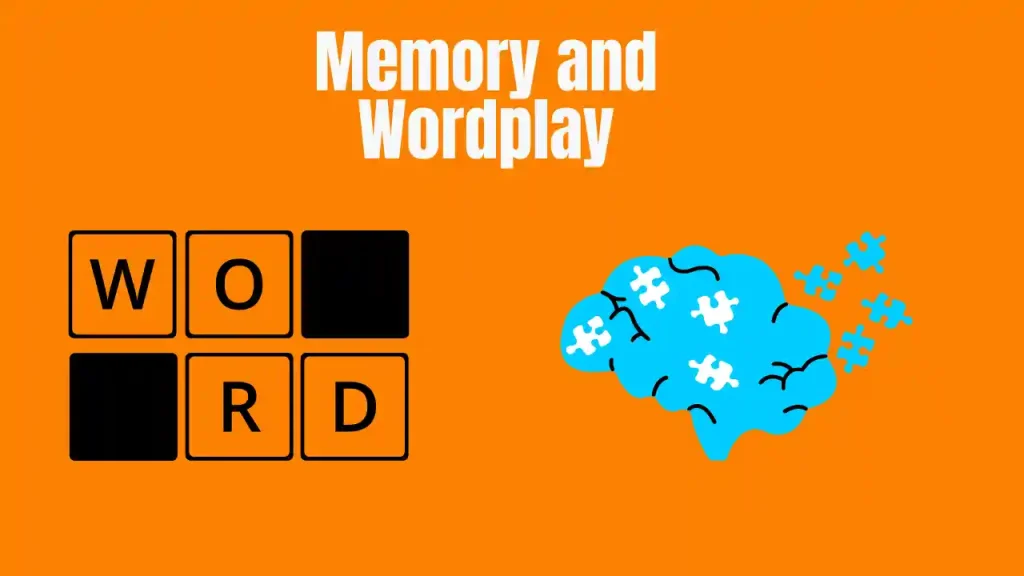
Crossword problems challenge your brain in fresh ways and inspire creativity rather than only word filling in. Crossword wordplay truly helps your brain create connections that boost language and memory abilities.
Crossword Wordplay More Than Just Fun
Crossword puzzles’ use of wordplay puns, double meaning clues, and challenging hints that cause you to consider several directions is among their trendiest features. A clue like “Sounds like a piece of clothing,” for instance, could be a lighthearted challenge since it asks you to consider how words sound rather than their meanings. This helps you to link concepts in ways you wouldn’t typically be able to do in casual discussion.
Working on wordplay like this helps your brain to establish faster links between words and their meanings. This benefits your daily life when you need to remember a term, name, or idea as well as while you are completing crossword puzzles.
Wordplay’s aid in memory
Your brain gets better in connecting words and concepts the more you practice wordplay. If you come across a crossword puzzle like “French for Earth,” for instance, your brain is not only remembering the word “terre,” but also tying it to the more general idea of language and how many languages employ different terms for the same purpose.
Wordplay tests your intellect to see things from many viewpoints and outside the box. Solving puzzles with this kind of twist not only helps you memorize words but also actively develops your mental flexibility, which is fundamental for memory.
Creating Memories using Word Associations
Many times, crossword clues call for related or synonymous words. Your brain begins to form stronger links between comparable meaning terms as you go through these hints. Consider a clue like “Visibly muscular crossword clue,” which asks you to come up with terms that, although in various ways, capture the same concept. Words like “Buff,” “toned,” or “ripped” come to create a mental network in your brain if you consider them. Your memory improves with increasing frequency of making these kinds of connections.
Here is where crossword puzzles excel. Making these connections and always practicing wordplay will help you to actively strengthen your memory.
The Pleasure of Combing Riddles and Puns
The humor and intelligence that frequently permeates the clues in crossword puzzles adds to their captivation. Occasionally you are solving a conundrum rather than merely a word. A clue like “Bumped things” (answer: “fists”) is the ideal example of a lighthearted, challenging puzzle that pushes you to use non obvious thinking. Because they encourage your brain to work harder and consider words in a deeper sense, these kinds of hints make completing crossword puzzles much more satisfying.
Crossword Memory Reeneragement
Crossword puzzles are like the best workout for your memory when it comes to maintaining cognitive ability. They not only assist in short-term memory recall but also over time aid to reinforce long-term memory.
How Combing Through Crossword Puzzles Improves Your Recall
Consider it: each time you finish a crossword puzzle, your brain is working in a way that facilitates word, definition, and idea recall. It could take some tries initially to recall some terms. But your brain improves in storing and accessing this knowledge with every challenge.
When you answer a clue like “How many pints in a gallon,” for instance, you are not only remembering a basic fact but also activating the working memory of your brain to fast access that knowledge. These little memory drills stack up as you keep solving, which helps you remember comparable knowledge going forward more easily.
Crossword Short Term versus Long Term Memory
Improving your long term and short-term memory is much aided by crossword puzzles. Like the solution to a crossword conundrum, short-term memory is what you use to recall anything you need right now. However, while you keep overcoming challenges, you are also strengthening long-term memory, hence enabling a longer term information retention.
For instance, your brain begins to recall particular phrases or concepts even if you are not working on a crossword if you keep answering hints referencing those items. These hints and answers cling with time; you will find yourself remembering them faster. Therefore, each time you sit down to complete a puzzle you are strengthening both the short and long term memory.
Continuity and Memory Strength
Repetition is one of the most effective ways crossword puzzles help to strengthen recall. You will find that some terms or hints recur often as you work through more puzzles. For example, you might find the words “skalk” or “sidle” recurring in several challenges. Your memory will improve much from this repetitious practice.
Your brain creates stronger links with a word or clue the more often you see it. These words eventually become known to you, and you will be fast to remember them anytime they arise in next challenges. It’s like repeatedly honing a talent until it comes naturally.
The Authority of familiarity
When working on puzzles, repetition also aids in pattern recognition and faster link making. For instance, once you’ve completed a few crossword puzzles using the clue “honey bunches of oats,” you will be quick to recall the solution should it resurface. Over time, this familiarity speeds up and increases enjoyment of puzzle solving.
Solving crossword puzzles increases the familiarity of your brain with various clue forms and typical word patterns. This improves your capacity to remember knowledge outside of crossword puzzles in addition to speed in puzzle solving.
Aging and Crossword Games
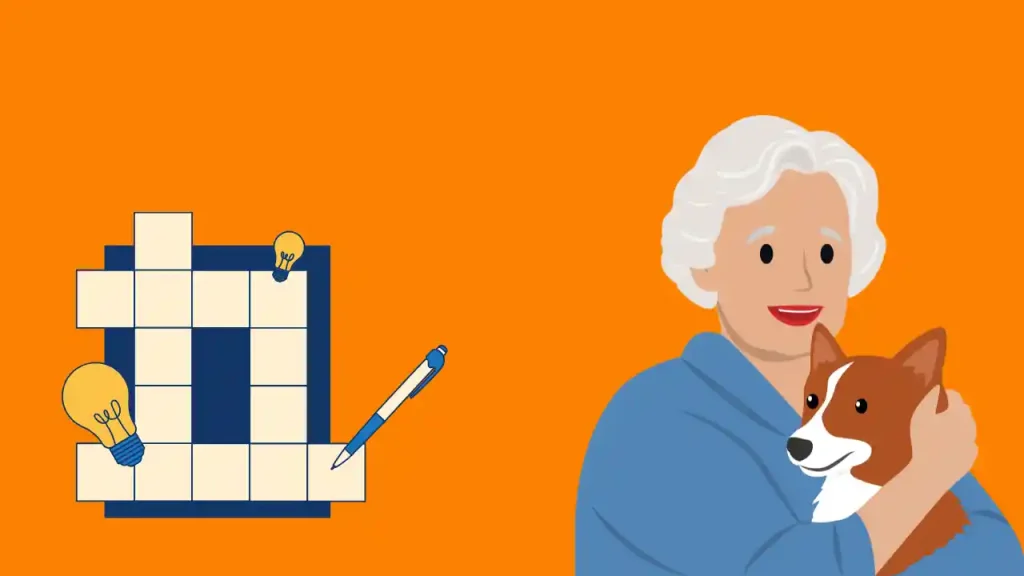
It is quite natural for our brains to slow down somewhat as we age. More commonly we might forget things, or find it difficult to recall names or crucial data. Interestingly though, routinely tackling crossword puzzles can actually help slow down that process and maintain brain function even as we age.
How Senior Citizens Benefit from Crossword Puzzles
Strong studies indicate that crossword puzzles are more than simply a leisure pastime; they might be a tool to help preserve your brain as you get older. Regularly engaged in mentally stimulating activities like crossword puzzles, studies have shown that those who do show less cognitive deterioration than those who do not.
The secret is that crossword puzzles call for deliberate thought. Crossword puzzles test your brain to remember words, solve problems, and establish connections unlike passive pursuits like TV or phone surfing. Maintaining a sharp mind and slowing down the natural drop in memory and cognitive ability depend on this type of mental workout.
Studies on Cognitive Health and Crossword Combing
Solving crossword puzzles has been found in studies by the Alzheimer’s Association and other organizations to help elderly persons retain memory and perform cognitively. Regular puzzle solvers even seem to be less likely to have dementia or Alzheimer’s disease.
When you consider it, crossword puzzles stimulate brain connections and test the working memory both of which support cognitive performance as you age. It’s like working out regularly for your brain one that maintains cerebral muscular strength.
Developing Mental Resilience with Crossword Puzzles
Apart from memory of knowledge, crossword puzzles enhance mental flexibility and boost problem-solving skills. Whether it’s remembering someone’s name, finding our way in a new city, or handling a difficult problem, aging typically presents obstacles that call for fast thinking. As you get older, doing crossword puzzles helps your brain remain agile and rapidly adjust to new knowledge qualities absolutely need.
For instance, hints involving wordplay or various meanings challenge your brain to examine several points of view, therefore enhancing your capacity to manage difficult circumstances. You improve in using this kind of thinking in daily life the more you practice it.
Stopping Memory Loss with Crossword Puzzle Work
Many of us as we age worry about memory loss. While occasionally forgetting where we left our keys or lose our phone is natural, for some people memory loss is more severe over time and results in disorders including dementia or Alzheimer’s disease. Still, maintaining our minds engaged is one of the best strategies for combat this. And working through crossword puzzles is among the easiest and most efficient approaches to accomplish it.
Why Crossword Puzzles Work Well for Stopping Memory Loss?
One of the techniques for keeping your brain active are crossword puzzles. They not only keep you occupied; they also boost cognitive ability by stimulating brain cells. Regular puzzle solvers are less prone to acquire memory-related disorders, including Alzheimer’s, according to studies since they constantly challenge their brain to think critically, recall knowledge, and create links between concepts.
Solving a crossword challenges your brain to function, not only to memorize words or retrieve terminology; this improves neural connections. This regular mental workout helps you preserve sharp memory and clear thinking over time, therefore facilitating information retrieval when needed.
Studies on brain health and scientific support for puzzles confirm that they can assist stop cognitive decline. Studies by the Alzheimer’s Association, for instance, reveal slower rates of cognitive deterioration among those who participate in mental activities including crossword puzzles than among those who do not. Like weightlifting for your brain, it gets stronger the more you challenge it and can better manage memory related issues.
Your brain is more exposed to difficulties that compel it to form connections, retain words, and solve issues the more crossword puzzles you complete. Over time, this consistent activity helps create and strengthen brain pathways, therefore enhancing memory and cognitive ability.
Including Crossword Combing in Your Every Day Activities
Including crossword puzzles in your daily calendar is a simple and fun approach to keep your brain sharp and stop memory loss. Whether it’s a simple morning puzzle or a more difficult one in the evening, daily solving of a few hints can have a significant influence.
Consider this: just a few minutes on a daily puzzle from USA Today crossword or a tiny crossword nyt will provide the brain the boost it need. The finest thing is You don’t have to spend hours; a little daily continuous effort will aid your brain slow down aging effects and maintain strong memory.
Real Life Crossword and Memory Preservation Examples
Many people who routinely complete crossword puzzles say they feel more psychologically alert and concentrated. One person said that doing the NYT mini crossword every morning has become second nature and keeps them sharp all through the day. Their attentiveness, word recall, even their speed in solving problems have improved. Little regular routines like crossword puzzle doing might help greatly preserve brain function.
The Interplay of Memory and Wordplay
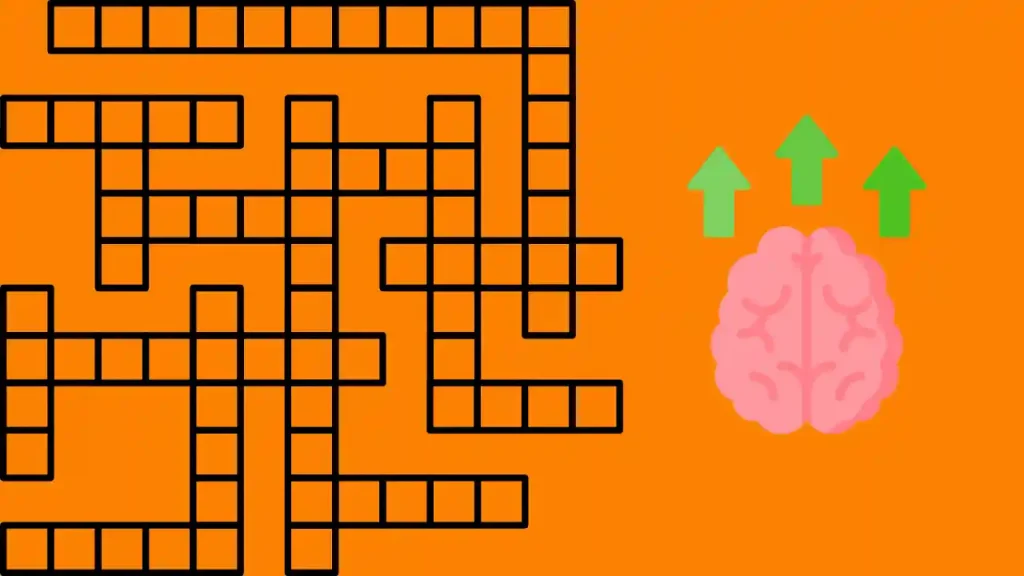
Solving crossword puzzles is much fun when one enjoys the wordplay. These kinds of hints which range from brilliant puns to multiple meaning clues do more than just entertain; they really boost your memory and cognitive skills.
How Wordplay Boosts Your Brain
Wordplay is common in crossword clues, which test your intellect to consider fresh approaches. A clue like “Sounds like an article of clothing,” for instance, can inspire you to consider a homophone for a word like “tie,” for “tie dye. These kinds of hints challenge you to link words, meanings, and sounds with one another, therefore strengthening your brain’s capacity for memory in many circumstances.
This kind of thinking sharpens your mental flexibility that is, your capacity to quickly remember words and meanings, identify patterns, and move between several ideas. Solving wordplay-based clues helps your brain search for connections that might not be immediately clear. This ability sharpens your memory as well as your capacity to solve problems.
Strong memory reinforced by word associations
Crossword puzzles let you continually create word associations. Many hints are meant to inspire several interpretations of the same word like “bumped things,” which might lead to “fists.” Your brain gets stronger from this style of thinking as you are always tying several ideas to the same word.
You strengthen your long-term memory every time you link a clue with its solution. Regular exposure to word relationships and meanings strengthens mental paths. Whether in a crossword or during a conversation, this technique over time helps you remember words faster and more precisely.
Play with words and cognitive flexibility.
Crossword puzzles challenge your cognitive flexibility in addition to memory of facts. Good memory and problem solving depend on your fast switching between several ideas and thoughts. Wordplay clues challenge you to consider a word from several aspects and find how it matches the clue. Improving either verbal memory or general cognitive ability depends on this adaptability.
Solving a hint like “French for Earth,” for instance, can seem easy at first, but the solution “terre” calls for you to consider language and how many civilizations use different terms for the same idea. That little mental step enhances your capacity to link words in many languages and settings.
The Joy of Wordplay Solving
Solving a smart wordplay clue is ultimately about the gratification of establishing those connections and having your brain operate in unusual ways, not only about finding the correct answer. Because your brain links solving problems with positive reinforcement, that sense of accomplishment when you break a difficult hint helps enhance your memory.
keep your brain sharp by working on puzzles
Solving crossword puzzles is more than simply a leisurely past hour. They are a great instrument for raising your general mental agility, language ability, and memory capacity. Solving puzzles challenges you to develop not only your brain but also your capacity to recall knowledge, analyze critically, and solve problems skills useful in daily life as well as in preserving cognitive health as you age.
From memory reinforcement to puns and witty hints, crossbooks are a fun and interesting approach to keep your brain in shape. Every problem, whether you’re working on a more difficult USA Today crossword or a NYT tiny crossword, is a mini brain workout that helps you boost both short-term and long-term memory.
Begin working on crossword puzzles right now
So why not schedule regular crossword puzzle time in your daily life? Whether your starting point is simple crossword puzzles or more difficult ones, every clue you solve advances your brain toward health and sharpness. Start solving now using your preferred crossword app or newspaper. It will astound you how much your memory enhances, and you will like working on this.
